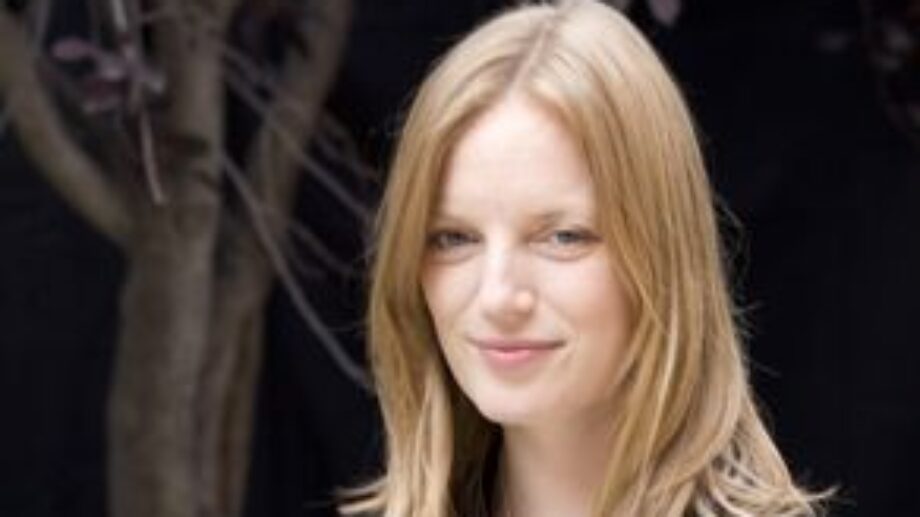
Sarah Polley (right) with cinematographer Iris Ng. Image courtesy of National Film Board of Canada, Ken Woroner.
Minutes after the secret lineup was revealed for the recent Telluride Film Festival, Hollywood bloggers began complaining about the roster. Twenty four hours later, as the festival got underway in Colorado, festival co-founder Tom Luddy was on the defensive against charges that his event was avoiding more mainstream movies this year.
“This is a festival for cinephiles,” Luddy emphasized in response to a question from a journalist about the dearth of well-known movies in the Labor Day weekend fest's small lineup. During the brief meeting with the media, Luddy and co-directors Julie Huntsinger and Gary Meyer encouraged journalists to check out a little-known new film by the actress and filmmaker Sarah Polley. The tip seemed to fall on deaf ears as many journalists wondered why The Master or Cloud Atlas weren't playing at the festival.

Gary Meyer, Julie Huntsinger and Tom Luddy, directors of the Telluride Film Festival. Photo by Eugene Hernandez
Within just two days Sarah Polley's third feature, this one a documentary about herself and her family, had struck a chord. Stories We Tell swiftly became the buzz film of the late summer film festival circuit. Yesterday it was acquired for American distribution, buoyed by great buzz and strong reviews.
Sarah Polley flew from Venice to Telluride over Labor Day weekend to screen her new movie ahead of a local premiere at her hometown Toronto International Film Festival this week. Curiously, though, her press reps said that she wouldn't be doing any interviews. “It's all up on the screen,” a publicist explained rather mysteriously.
“I desperately want, at least while the film is on the festival circuit, to have people experience and write about the film before the story—or to experience the many stories that this story has become as opposed to just my version of it,” Polley wrote in a blog post published on the day that the doc debuted at the Venice Film Festival. “It is, after all, why I made the film in the first place.”
Stories We Tell was a bit of a curiosity from the outset. Polley had recently opened her latest Take This Waltz in U.S. theaters and she was already bringing a new, previously unknown film to the festival circuit. This wasn't a movie that press and industry were tracking. She'd worked on it quietly, starting more than five years ago when a Canadian journalist threatened to report a rumor about her family. Polley convinced the writer to hold the story and rushed to see her dad to reveal information she'd recently learned. A secret from her family's past would change her relationship with her father and challenge how she viewed her own mother. Making a movie about the experience was the only way she knew to tell the story from her own vantage point and she was able to keep the press at bay while she worked on the film for many years.

Sarah Polley in Telluride earlier this month. Photo copyright Pamela Gentile.
Her roots in narrative storytelling, Polley employed dramatic techniques and approaches to tell her true story. She filmed various relatives and asked them to relate stories of her own mother. The result is a film that offers a complex, sometimes conflicting portrait of Polley's parents.
Introducing a screening of the film in Telluride, David Wilson offered that audiences often view documentaries as if they were a clear fishbowl that can be permanently polluted by a single drop of red dye. Wilson heads Missouri's True/False Film Festival, an event showcasing documentaries that blur the lines between fiction and reality. He warned Telluride attendees that their definition of documentary might be challenged by Stories We Tell. His introduction was fitting because it prepared the audience for a film that revels in both documentary and dramatic approaches to try and explore a personal story. Along the way it actually becomes less about Polley's own story and evolves into a broader look at families and even storytelling in general.
“This film is about memory and the way we tell the story of our lives,” Polley briefly told the audience as they settled in to watch Stories We Tell in Telluride. The film is narrated by the words of her various family members shown on screen throughout, along with Super 8 footage that illustrates some of their tales. She added that she wanted to “be a detective in my own life and family.”
Like an investigator in a TV procedural, Polley details her findings and then opens them up for all to examine. Her approach is careful and calculated, yielding genuine surprises that challenge the viewer in exciting ways. She builds her narrative to a climax that is both touching and revelatory.

A still from Stories We Tell.
The movie resonated immediately with moviegoers in Telluride. Polley shunned all but one festival Q&A and instead offered to hang around outside after the screening to talk with audiences on their way out. Questions and comments seem to go beyond the particulars of her own family story. Moviegoers shared their own stories with others. The head of a distribution company wondered aloud how he might market the movie.
Its actually a testament to Polley and her filmmaking that one doesn't even need to know who she is to care about complex family drama that unfolds on screen.
“Making this film was the hardest thing I’ve ever done. It took five years and tormented me,” Polley explained in her recent blog post, “and as the story was told, or perhaps because the story was told—it changed. So I decided to make a film about our need to tell stories, to own our stories, to understand them, and to have them heard.”
Roadside Attractions announced a deal for the film yesterday and plans to release the movie in U.S. theaters early next year.



